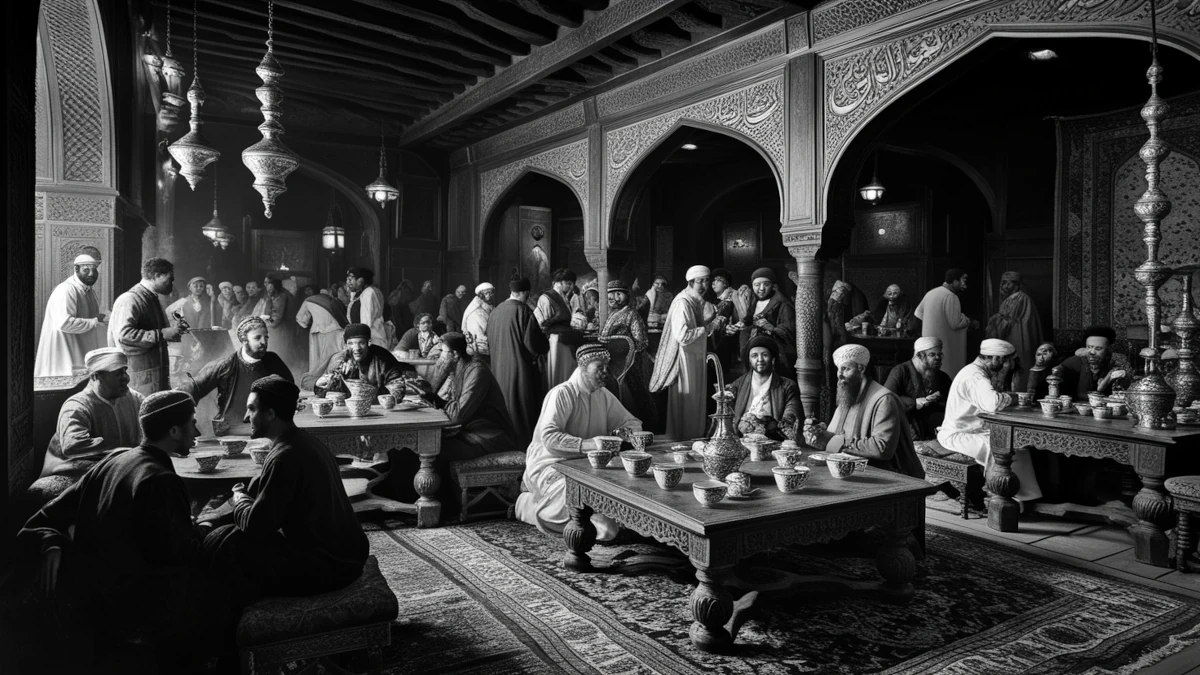Coffee houses are more than just places to enjoy a cup of coffee; they are vibrant cultural hubs with a fascinating history. From their origins in 16th-century Mecca to their enduring presence in modern society, these spaces have shaped social, cultural, and political landscapes worldwide. This article delves into the rich history and cultural significance of coffee houses, highlighting their transformative influence and lasting legacy.
Table of Contents
The Origins of Coffee Houses
The Birthplace of Coffee Houses
Coffee houses, known as qahveh khaneh in Persian, trace their beginnings to 16th-century Mecca. As coffee gained popularity among pilgrims during the Hajj, these establishments became central to communal life. They provided a welcoming space where people could relax, enjoy coffee, and engage in spirited discussions.
The introduction of coffee houses marked a shift in social interaction. Coffee, once limited to private consumption, became a communal experience, fostering a sense of belonging among patrons.
Spread Across the Islamic World
From Mecca, coffee houses quickly spread to major cities like Cairo, Damascus, and Istanbul. The Ottoman Empire played a pivotal role in popularizing these establishments. By 1554, the first Ottoman coffee houses opened in Istanbul, near bustling marketplaces and ports.
These spaces were egalitarian in nature, attracting a diverse clientele, including scholars, merchants, poets, and officials. They broke down traditional social barriers, creating a melting pot of ideas and cultures, which became the foundation of modern coffee culture.
Coffee Houses in the Ottoman Empire: A Cultural Revolution
Centers of Art and Debate
Ottoman coffee houses were more than venues for enjoying coffee; they became cultural epicenters. Patrons gathered to discuss poetry, philosophy, and politics. Artists and scholars found inspiration in these spaces, reciting their works to captivated audiences.
The ambiance was luxurious yet accessible, featuring ornate décor, plush seating, and traditional Turkish coffee served in finely crafted cups, often accompanied by sweet delicacies. This environment elevated coffee houses into spaces of creativity and intellectual exchange.
Breaking Social Barriers
Coffee houses were revolutionary in their inclusivity. They welcomed individuals from all walks of life, fostering a sense of community and shared purpose. This integration contributed to the rise of coffee and culture, as these spaces bridged societal divides and enriched cultural life.
Coffee Houses as Social and Political Hubs
Venues of Political Discourse
Coffee houses were pivotal in shaping public opinion, serving as platforms for political discourse and resistance. Governments, aware of their influence, often attempted to regulate or shut down these establishments, fearing the spread of dissent.
Despite these challenges, coffee houses persisted. Their role as venues for free expression solidified their status as social and political hubs, particularly during times of unrest and change.
European Transformation
By the 17th century, coffee houses had spread to Europe, transforming intellectual and social life. Cities like London, Paris, and Vienna embraced these establishments, which became known as “penny universities” for their role in fostering knowledge and debate.
In these spaces, luminaries of the Enlightenment gathered to discuss ideas, shaping movements that would change the course of history. Coffee houses became synonymous with progress, innovation, and intellectual freedom.
The Enduring Legacy of Coffee Houses
Modern-Day Coffee Houses
Today’s coffee houses, or cafés, are direct descendants of their historical counterparts. They continue to serve as spaces for connection, creativity, and community. With diverse atmospheres ranging from cozy corners to bustling urban hubs, modern coffee houses cater to a wide array of preferences and cultures.
Bridging Past and Present
The essence of the coffee house experience remains unchanged: fostering conversation, creativity, and connection. The global presence of coffee houses reflects their adaptability and cultural significance. From traditional Turkish cafés to contemporary artisan coffee shops, these spaces celebrate the enduring legacy of coffee culture.
Conclusion
Coffee houses have played a pivotal role in shaping societies, evolving from humble beginnings in Mecca to becoming global cultural icons. They are more than places to drink coffee—they are reflections of our collective desire to connect, share ideas, and celebrate life’s simple pleasures.
As we sip our favorite brew today, we participate in a centuries-old tradition that has influenced art, politics, and culture. The story of coffee houses is a testament to the power of coffee culture to bring people together and inspire change, bridging the past and present in every cup.
